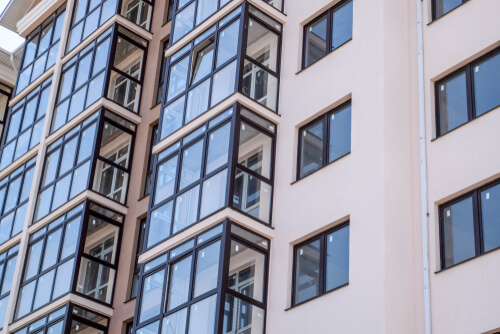Covid-19 has changed the real estate landscape, but how much of this change will be permanent?
Many people are at home for long periods of time, for the first time, so connection to and appreciation of ‘home’ has been different. Choices (or limits) around what type of home they want and need have become more prominent.
The concept of ‘the office’ has become fluid, and the daily commute to gather in one place to perform separate tasks may be consigned to history for some. The spaces that we inhabit as families and colleagues are no longer rigidly defined and separated.
The BTR sector has an opportunity to provide solutions to these new challenges, and to provide models for new ways of living and working that match tenants’ needs.
The Strengths of Build to Rent
A June 2020 report issued by Trinity McQueen on behalf of Sigma Capital Group – ‘The Rental Experience: Setting the Standard Market Research 2019’ – -highlighted what renters view as important and gives a welcome overview of a market that has little sector-wide data.
It lists a number of points that renters look for. As BTR can design for long-term end use it can help meet these needs and differentiate from the rest of the private rented sector.
As an example, the report stated that 61% of renters view a garden as a priority. The research was undertaken in 2019, so this was a top requirement even before the pandemic. This may be an option for some but most developers cannot provide gardens for everybody. However, by providing shared amenity spaces that are well designed and have thoughtful and intentional spaces for different groups and uses, BTR can meet this need in other ways
Johnny Caddick of Moda noted recently that some of the trends that were already part of the BTR product have been amplified by the Covid-19 crisis, and that factoring health and wellbeing of residents into the design stage is vital. With people spending more time at home, there’s a greater sense of community, desire for shared activities and a strong need for technology to enable communication. Again, BTR is well placed to help.
Covid-19 may also mean there are more people in the rental sector, who will require a breadth of options from large family homes to smaller city apartments; all will be looking for a point of difference and the benefits that BTR landlords can provide.
Changing attitudes to renting
The Sigma research noted 46% of renters are quite happy renting, while 24% are very happy,and that the average private renter has been renting for seven years. 41% of renters stated their preferred length of contract would be two or more years when renewing (assuming they were happy in the property). All good news for investors and BTR operators.
The report shows that attitudes are changing towards renting long term vs home ownership. The increase in quality rented product, choice, and the different offering of the BTR market to traditional private rented sector is contributing to these changing attitudes.
Of course, some have a negative perception of renting and the Sigma report highlights what the industry can do to change this. Institutional landlords have resources and expertise to be able to provide support and options that may not have been available from private landlords. Sigma was able to offer support for NHS workers, and build brand awareness and loyalty, by demonstrating corporate responsibility when tenants were facing unprecedented times.
A positive future
Craig Langley, director at Savills, recently spoke of the Sigma report and noted that, while institutionalised product is still a small amount of the market, corporate landlords can provide a brand and opportunities for renters that they will come to demand. BTR has an opportunity to showcase the strengths of institutional or corporate landlords, and combat some of the negative press that has been aimed at ‘all landlords’ generally.
The Sigma report shows a willingness to share information that is going to be vital to attract more investment and grow the sector. The bigger the market, the more quality products will be on offer which will find and retain residents who want to live in rental accommodation for a longer term. This will provide more data and increase the confidence of investors.
In the new world of combined work and home life, the security that comes from renting from a well-known brand and secure landlord will be even more important to renters. Being able to provide specifically designed spaces for health and fitness, up-to-date technology and opportunities for interaction and communication between residents and communities means that the BTR sector is in a position to provide new ways of living.



